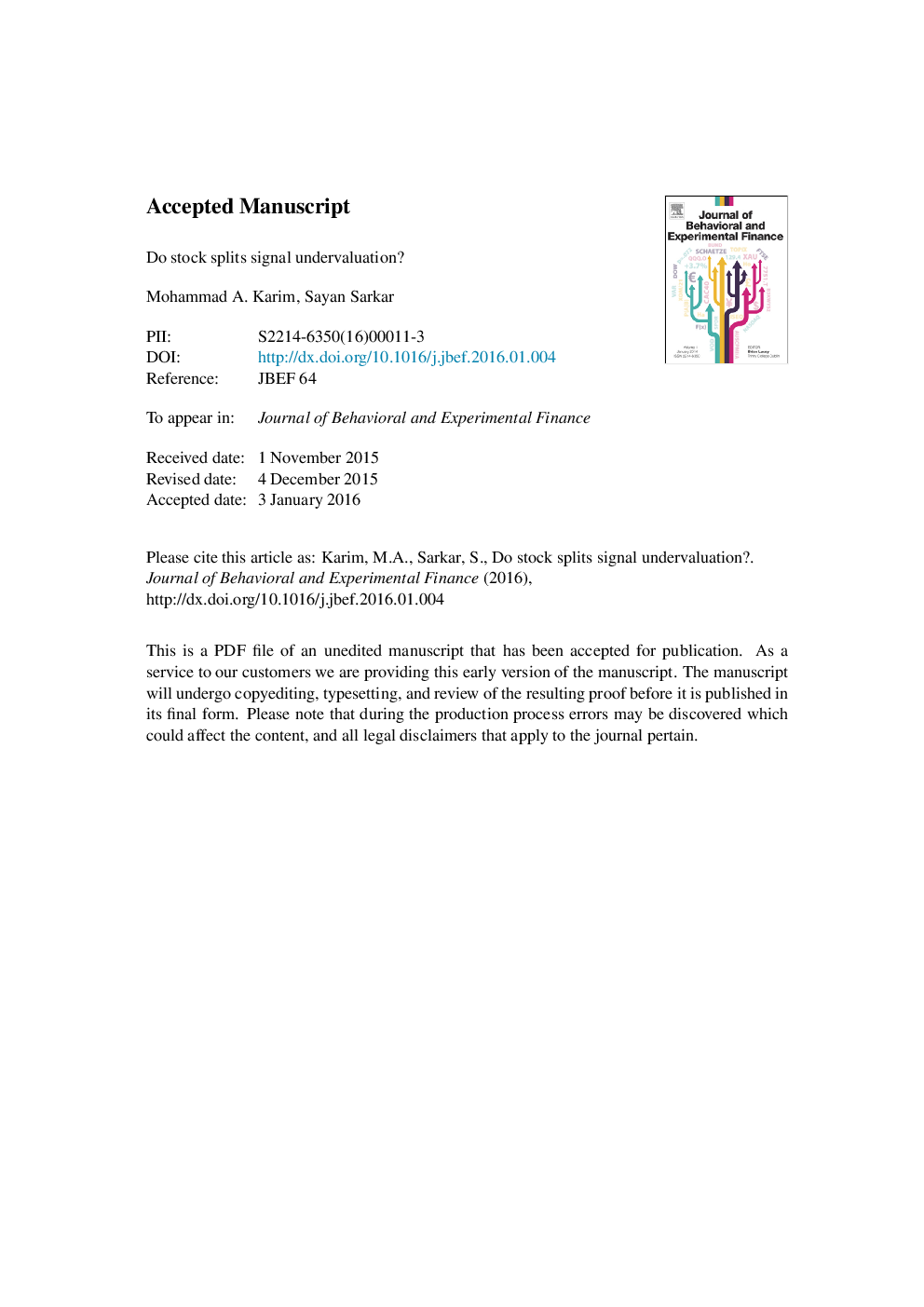| Article ID | Journal | Published Year | Pages | File Type |
|---|---|---|---|---|
| 7296705 | Journal of Behavioral and Experimental Finance | 2016 | 17 Pages |
Abstract
Signaling theory of stock splits postulates that managers use stock splits to convey favorable private information to the market about the fair value of the firm and thus attempt to reduce or eliminate undervaluation. In this paper, we investigate this proposition using three different misvaluation estimates. Contrary to the undervaluation hypothesis, we find that split firms are overvalued, rather than undervalued for the seven years surrounding split announcements. Moreover, the overvaluation reaches its peak in the split announcement year and declines in the post-split period. Overall, our results suggest that firms do not use stock splits to signal undervaluation.
Keywords
Related Topics
Social Sciences and Humanities
Economics, Econometrics and Finance
Economics, Econometrics and Finance (General)
Authors
Mohammad A. Karim, Sayan Sarkar,
